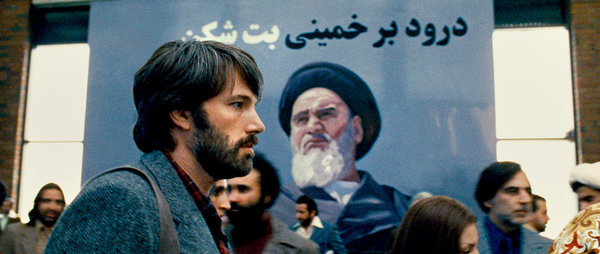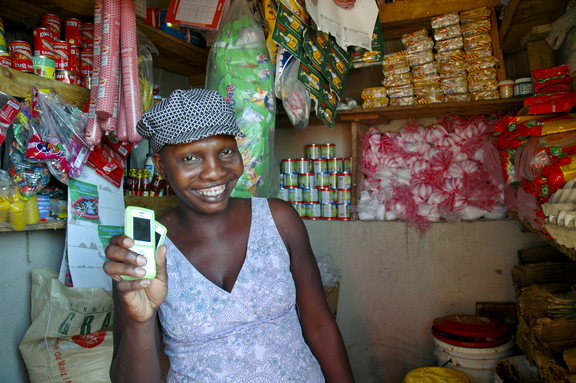Argo: Fact, Fiction & Filmmaking
As many of you know, I have been working on a documentary for the last year. It is my first endeavor into filmmaking, and so I spend a lot of time watching other films to see what makes a good film good. I saw the critically acclaimed film Argo the other day, which was a really good film. Being a foreign policy geek and knowing a few things already about this little known story from the Iran Hostage Crisis, I went into the movie wanting to like it. Argo has all the base elements for a fantastic film – suspense, bravery and redemption with a splash of Hollywood parody. Also, this movie could not be more important in today’s geopolitical environment. Embassy killings and hostile US relations with Iran seem to be as relevant today as they were in 1979.
However, after watching Argo, I began to realize that the film was very “loosely based” on both a 2007 Wired Magazine article and a memoir by the real Tony Mendez. In fact, many parts of the film were totally made up. While this wasn’t a documentary, but rather a scripted, feature film where director and main star Ben Affleck has taken great artistic license, Argo gave me a lot to think about when dealing with fact and fiction in filmmaking.
Spoiler Alert: I will be discussing how the film ends
1. The Real Tony Mendez, His Latino Heritage and His Marriage
Being that I spend a lot time reporting on race relations, the first most obvious issue with this film is that white Irish Ben Affleck played CIA agent Tony Mendez, who is Latino. Of course, this always brings up the conversation of why a qualified Latino actor didn’t get this pivotal acting role. Some of the arguments I heard in favor of Affleck ranged from Mendez’ race doesn’t play a major role in the film, to Affleck has the same fair-skinned complexion as Mendez, to just simply it’s Affleck’s film and he can do what he wants with it, including starring as Mendez. Also in the movie version, Mendez is portrayed as a man recently separated from his wife with whom he has one child with. In fact, Mendez never indicated that he had a troubled marriage with his wife, who succumbed to cancer in 1986. In fact, his wife drove Mendez to the airport for his trip to Iran. The real Mendez also had two sons and a daughter with his late wife. When Mendez was asked recently by Fareed Zakaria on his CNN show about Affleck playing him in Argo, he said the following: “Well as I always say, Ben is a nice guy. He’s probably not as good-looking enough to play me, but we’ll give a pass. He’s a damn good director, so I was proud to have him on the big screen looking at somebody and say my name is Tony Mendez. That was quite a moment.”
2. Uh-oh, Canada
In the film Ken Taylor, the Canadian Ambassador to Iran during the hostage crisis, is given a lot of credit for allowing the six Americans to hide out in his home, despite growing suspicion from his Iranian maid. However, Taylor might not like Affleck’s film because it is believed that Taylor played a bigger role in the now famous “Canadian Caper.” According to the book Our Man in Tehran, Taylor was a spy during the whole hostage crisis at the request of then President Jimmy Carter and the approval of the then Canadian Prime Minister Joe Clark. The six Americans stayed in the home basement of Canadian embassy employee, John Sheardown, who wasn’t featured in the film. Apparently, the Canadians did a lot of things for the Americans, including “providing them with food, shelter, clothes, real passports sent by our government, documents, maps and Scrabble. The Canadians scouted the airport, sent people in and out of Iran to establish random patterns and get copies of entry and exit visas, bought three sets of airline tickets, even coached the six in sounding Canadian.” In Argo, Mendez is shown doing all the above instead. At the end of the film, the CIA lets Canada take the full credit out of fear of retaliation for the other American hostages still in Iran. Also, Taylor is played by Canadian actor Victor Garber, who looks at lot older in the film than what the real Taylor looked like in 1979. When asked about his thoughts on the film, Taylor said “that we’re [Canadians] portrayed as innkeepers who are waiting to be saved by the CIA.”
3. Hollywood’s Role
Who would have thought Hollywood could play such an important role in American diplomacy? Yes, Mendez did head out to L.A. to set up a fake production company, but there was no such script called Argo. While the CIA account says otherwise, according to a piece in Slate, Mendez didn’t sift through a pile of other scripts with makeup artist John Chambers (played in the film by John Goodman) and a snarky producer played by Alan Arkin (a person who didn’t exist in real story) before finding Argo. Chambers gave Mendez a real script upon their first meeting called Lord of Light, which was based on a best-selling science fiction book. Mendez changed the name of that film script to Argo just to be funny. In the film Mendez drew the storyboards, whereas in real life the storyboards were drawn by comic book artist Jack Kirby. While Alan Arkin’s character is fictionalized, Robert Sidell, famed makeup artist for E.T. and other films, was actually the other real person involved in “making Argo.” In the original Hollywood Reporter article announcing this film, the headline said “Two make-up artists turn to producing with sci-fi ‘Argo.’ ”
4. Escape from Tehran
The ending was the best part of the movie when Mendez and the six Americans make it through the airport disguised as a movie production team. Everything that could possibly go wrong, went wrong or almost wrong. After the CIA cancels the scheme in the film, Mendez has an epiphany overnight and decides to go ahead with the mission anyway. Mendez tells his CIA boss this and the US government goes through the motions to give clearance for the airline tickets at the very last minute and to contact the now shutdown production company out in L.A. Meanwhile back at the airport, the travelers get their tickets. However, the customs agent couldn’t find the white visa sheets for the American travelers, but lets them through anyway. Then the Iranian security guards question their passports and travel arrangements at the gate. When one of the security guards calls the Hollywood production company to verify the travelers, John Chambers just so happens to answer the phone at the very last minute. The Americans finally get on the plane and as it is taking off, the security guards realize they were duped, thanks in part to shredded documents repaired by carpet weavers. The film ends with the Iranian police and army chasing the Swissair plane the Americans are traveling on, but the plane takes off before they could catch them. Champagne bottles are popping as soon as the plane is out of Iranian airspace. Mendez gets an award from the US government, and reconciles with his wife. Happy ending and fade to black… The only problem with this whole ending is that it didn’t happen in real life. In fact, according to the real Mendez, getting through the airport and onto the plane was “smooth as silk.”
So clearly Affleck was taking a lot of artistic license with the film. However, would the film have been less interesting without the over the top dramatics and suspense? Probably. If the ending used the real events as they happened, the film’s overall impact probably would have been less thrilling (and not to mention less money at the box office and lower Oscar-winning chances). The film’s parody of Hollywood was probably a real reflection of how Hollywood really operates. Maybe one day someone will make a proper documentary that will truly tell the story in earnest. Argo is not the first or the last film to take historical events out of context, but it makes me question the ethics of balancing fact and fiction in a film. The reality here is that most people will see this film and take everything as fact when that is simply not true. I saw this comment left on a website reviewing this film, which sums up how I will go forward with my own future filmmaking.
“One can be entertained and prompted to seek the truth all at the same time.”


